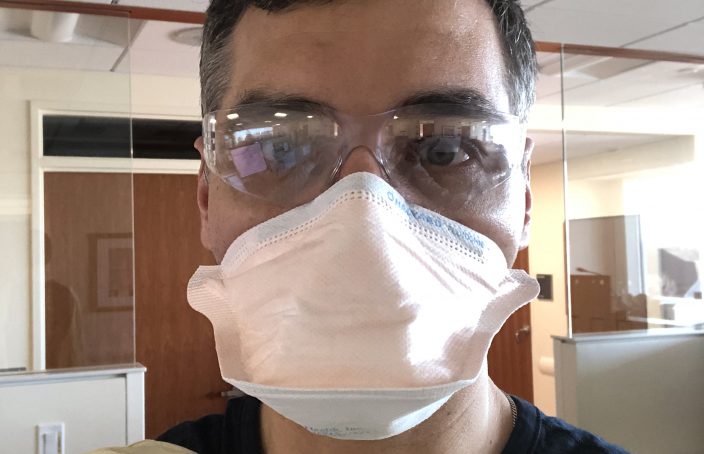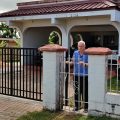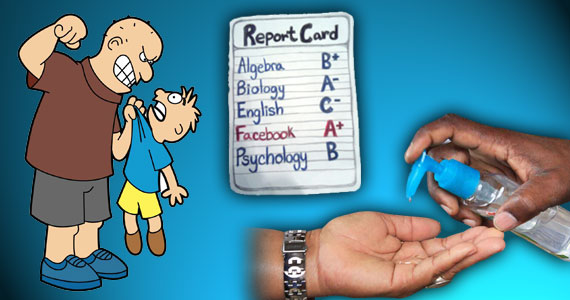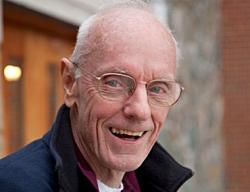Wear your mask if you must, but don’t let it stifle you!
The face mask that we wear in these days of the COVID-19 pandemic is still every bit as strange to me as it was two months ago when we began wearing it.
Part of the reason is what a mask signified when I was growing up. The masked men in the old Westerns I watched were bandits–the bad guys riding into town to take what they could and run. They were the bank robbers, disguising their voices along with their faces, as they demanded all the money in the safe. Of course, there was also that other masked man, The Lone Ranger, who had other reasons for wanting to hide his identity. But most of those in disguise were up to no good, and we kids watching the old black-and-white movies knew it.
Years and years later, here we are wearing masks just like the bandidos in those old movies. This time, though, the mask is not to frighten people but to reassure them. We’re here not to steal your health (or our own) but to protect all of us. “Stay safe,” is the muffled advice that we offer one another from behind our mask.
Good advice during this outbreak, I suppose, but let’s not take it too far. Wear your mask for your safety and the protection of others, but don’t let it stifle you.
It hasn’t stifled the health workers on the front line, the people who are being applauded each day for the work they do to help those stricken with the disease. They don’t have the luxury of remaining behind locked doors, leaving only to stock up on the disinfectants, wipes and food needed to protect and sustain their families.
Masks hide smiles. But there are other ways we can provide “smiles,” so important in the lives of the lonely and discouraged at times like this. We can “smile” by bringing food, as people do to us priests often during this time of isolation. We can also make our voice “smile” when we call friends (and even not-such-good friends) to reassure them that they are not alone these days. I’ve been trying my best these days to “smile” just a bit more on those beating a path to our door for assistance.
Masks also conceal our identity, as they did for the bandidos in those old movies. Is this our intention in today’s COVID-ridden world? If not, then how do we go about revealing our true selves to any and all amid these strange restrictions? I’m not entirely sure, but I know this is a question we should all be thinking about. How can we do an about-face, even as we adhere to the rules in force, so that we might let the light of our spirit shine on family and those beyond?
“Stay safe” is not the last word. It’s not the most important word. Is it too much to hope that these weeks of masked faces will not simply be a time of withdrawal, but of outward movement in the most important areas of our lives?





